The best sunscreens for mature skin, according to a 40+ beauty editor who’s tried them all
These clever formulas are packed with skin-loving ingredients that hydrate, brighten, and soften the appearance of fine lines

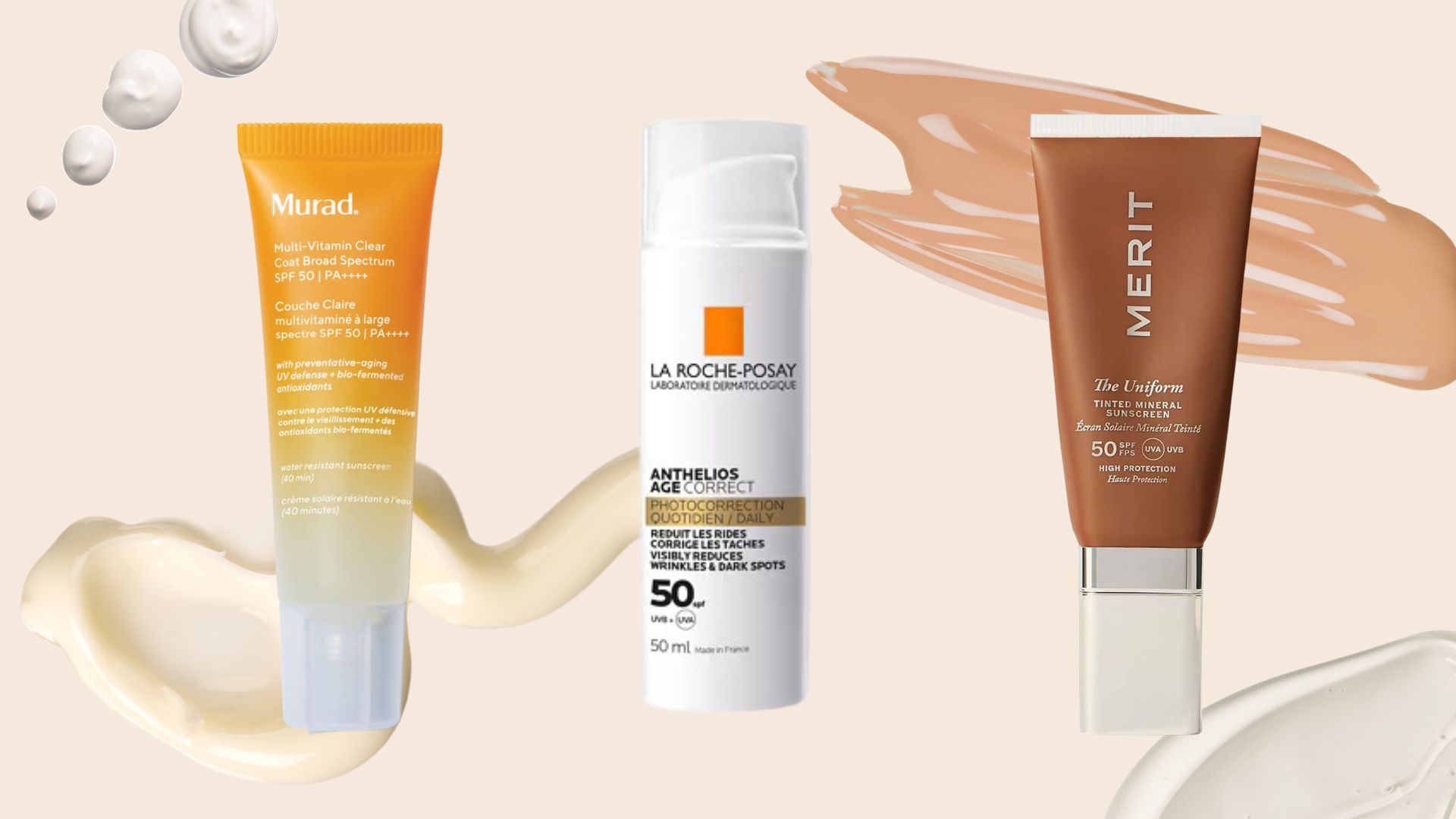
The best sunscreens for mature skin aren’t just about sun protection - they’re skincare powerhouses in their own right. Whatever your age, SPF should be a number one non-negotiable, no matter the weather or season (yes, even when it’s cloudy outside).
And the newest generation of the best facial sunscreens does far more than defend against UV damage - clever formulas are laced with skin-loving ingredients that help hydrate, brighten, and soften the appearance of fine lines, sun spots, and uneven tone. And while we are all for celebrating the beauty of ageing, we’re equally in favour of products that help us feel our best in our skin.
We’ve consulted skincare experts and tested numerous formulas to find the SPFs that truly perform for mature skin - no white cast, no creasing, just glow-boosting protection that works.
Best sunscreens for mature skin, as reviewed by a 40+ beauty editor
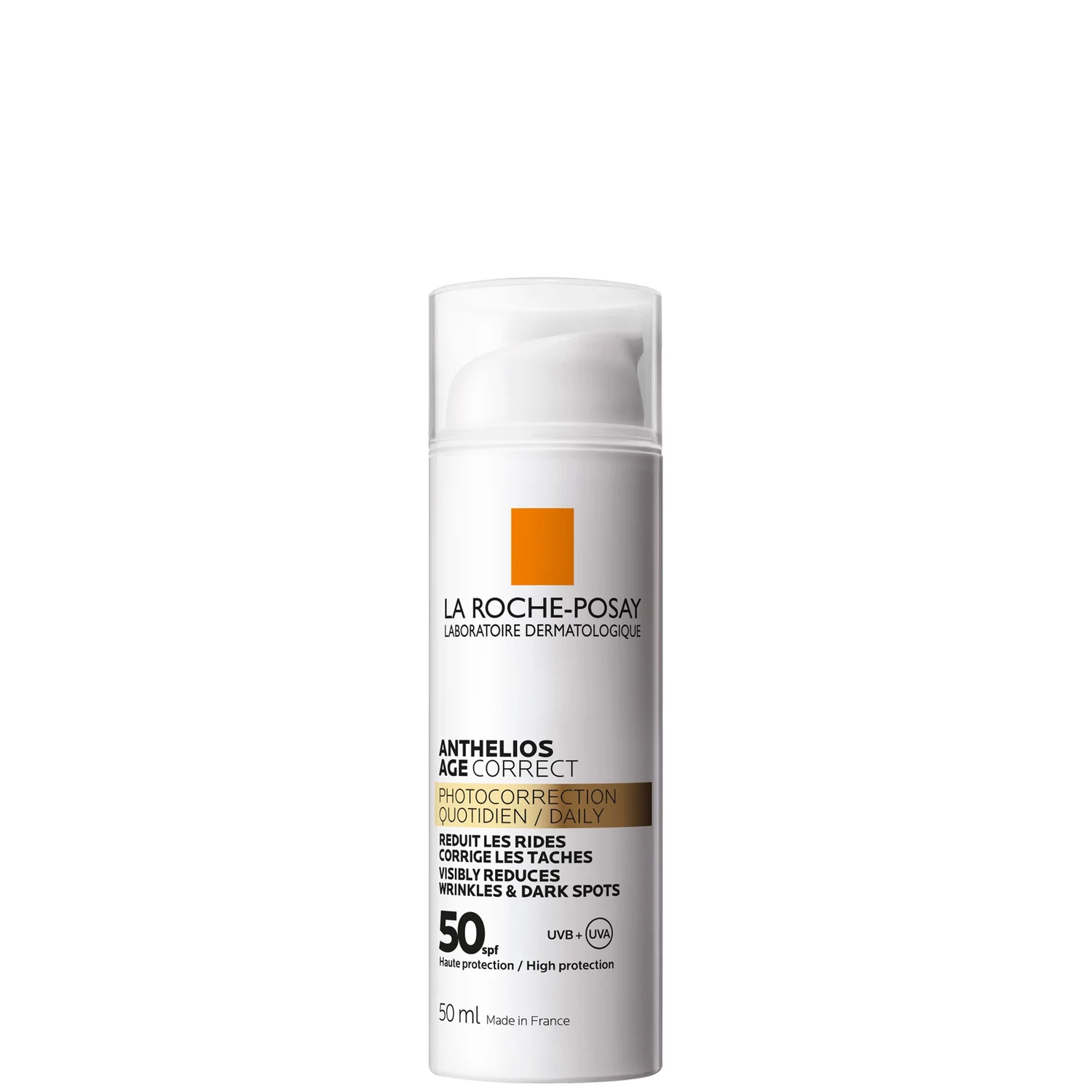
French pharmacy favourite, La Roche-Posay is a brand I constantly recommend to everyone and has long been a go-to for sensitive, reactive skin. I’ve used their original Ultra-Light Invisible Fluid SPF for years, so I had high hopes for this new hybrid formula. And it didn’t disappoint. This one feels different from the original. Less runny, more like a lightweight moisturiser – in fact, it bills itself as an SPF and moisturiser in one. The texture is silky and smooth (no tackiness), and it sinks in quickly without leaving a white cast, I can imagine even on paler skin. But what I really love is the skin-caring extras. It’s packed with hyaluronic acid to plump and hydrate, and niacinamide – a go-to for calming redness and tackling uneven tone. It genuinely feels like skincare, not just sun protection. I will say, if you’ve got dry skin, you might still want to layer a moisturiser underneath. It plays nicely with other products, doesn’t pill, and makes a great base for makeup. My only tiny gripe? The packaging. It’s a bit chunkier than the original SPF fluid and not quite as travel-friendly. But honestly, the formula more than makes up for it. It’s now firmly part of my morning routine – and yes, I’ve already repurchased.
Pros
- Contains hyaluronic acid to hydrate and niacinamide to even out tone.
- Makeup-friendly
- Suitable for sensitive skin
Cons
- Not rich enough for very dry skin
- Chunkier packaging, so less travel-friendly
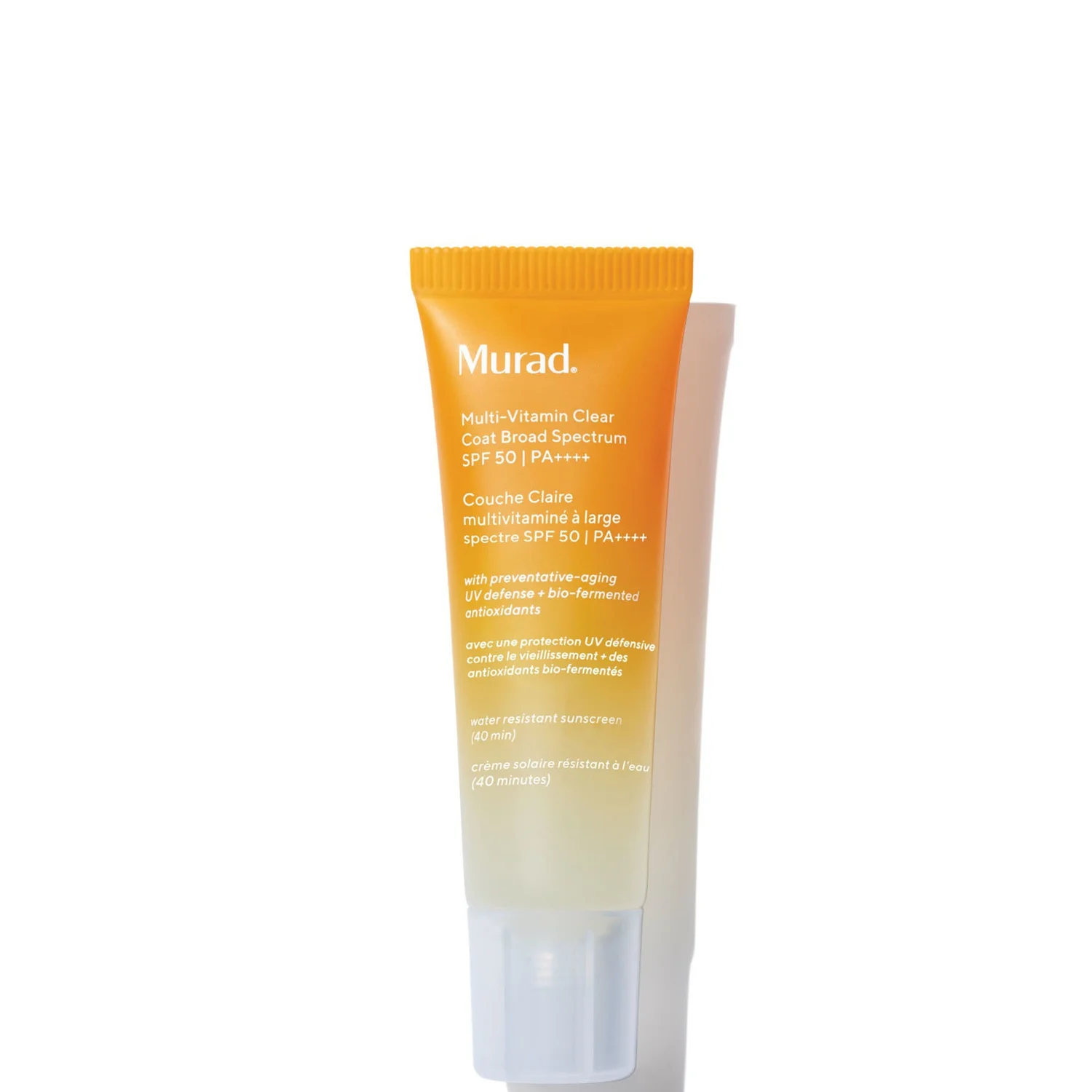
It’s packed with vitamins C, D, E, F, and B - a bit of an alphabet soup, but in a good way. These help brighten, support skin barrier function, and fight off the free radicals we’re daily bombarded with. For mature skin, that’s a huge plus. For brightness, it’s the vitamin C that really does the heavy lifting. It’s a potent antioxidant known for helping fade sun spots and pigmentation, while also giving skin a fresher, more even tone over time. Combine that with vitamin B to support cell turnover, and vitamin E to calm and protect the skin barrier, and you’ve got a pretty skin-savvy SPF that works beyond surface-level protection.
The texture is a clear, weightless gel that feels more like a serum than a traditional sunscreen. No white cast, no pilling, but it did feel like there was a slight film over my skin. It glides on easily and once settled, it leaves my skin looking fresh. I’ve tested this on bare skin, over moisturiser and under foundation – it played well in all scenarios. I wore it under makeup, on bare skin, during hot dog walks and long desk days - it held up across the board. I didn’t need to blot (rare for an SPF 50), and it didn’t cling to dry patches, which is a win if your skin’s feeling a little more temperamental these days. And because it’s fragrance-free and non-comedogenic, it’s a solid option for sensitive or breakout-prone skin, too.
Pros
- Invisible, primer-like finish
- Loaded with antioxidants
- Water-resistant (40 min)
- Fragrance-free and non-comedogenic
Cons
- Can feel greasy or ‘slippery’
- Slow to dry
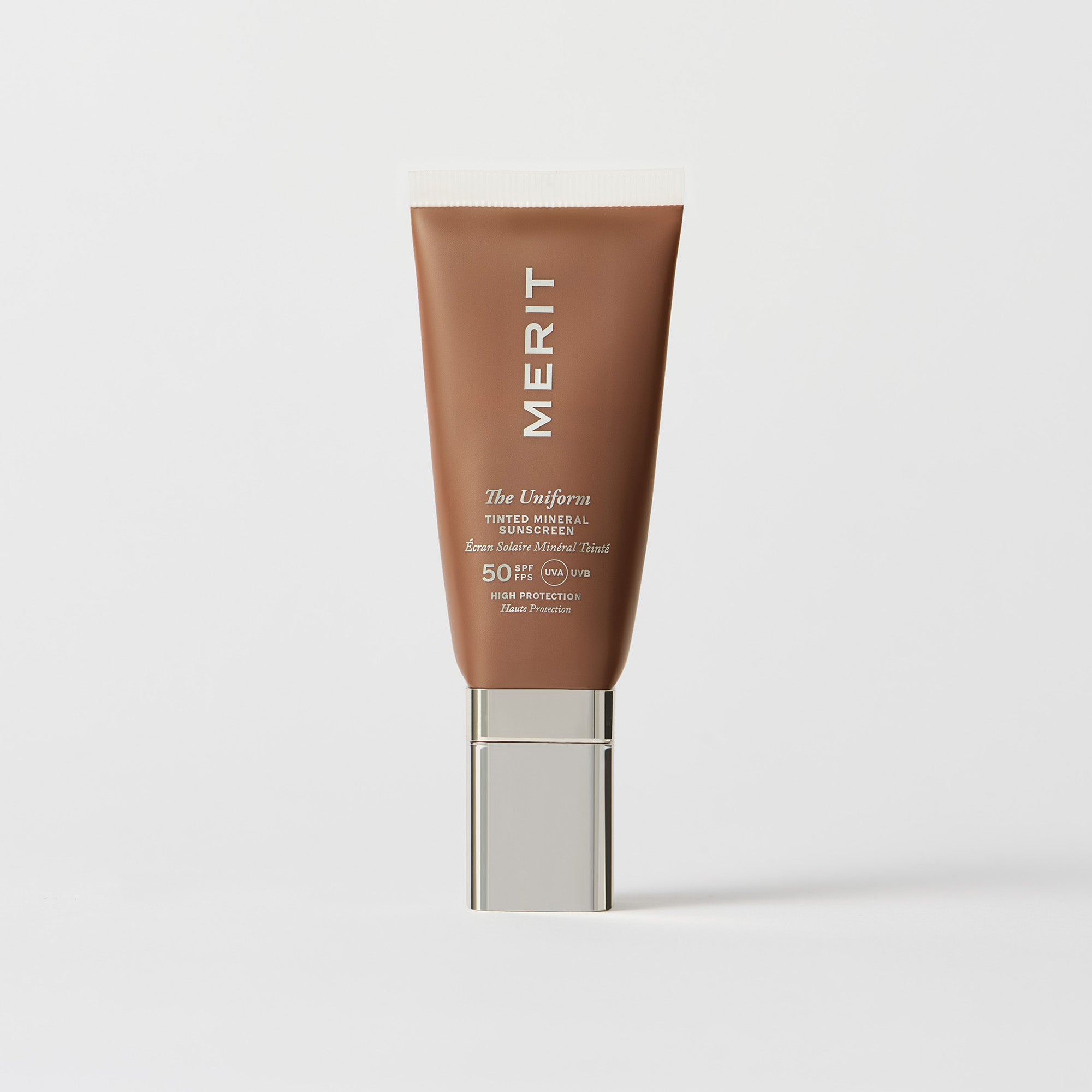
It glides on easily and blends beautifully with fingers - no sponge or brush needed. I tested the shade “24,” and it delivered a soft, even wash of colour that blurred minor redness and gave my skin a healthy, subtle glow. Think weekend makeup, rather than full-coverage foundation. As for protection, this SPF uses non-nano zinc oxide to deliver broad-spectrum SPF 50. That’s particularly important for mature skin, where UVA rays can accelerate collagen breakdown and worsen hyperpigmentation. I appreciated knowing I was getting solid mineral protection without the typical chalky white cast. What I loved most, though, was how comfortable it felt. No pilling, no stinging around the eyes, and no clogged pores after a few days of wear. The fragrance-free formula also gets points for being suitable for sensitive or reactive skin types, which is especially valuable as skin becomes more delicate with age. The formula includes plant-based emollients and hydrators like glycerin and meadowfoam seed oil, helping to lock in moisture and give skin a smoother, plumper appearance—both welcome additions if you’re dealing with fine lines or a lack of radiance.
Pros
- 100% mineral & broad-spectrum SPF 50
- Lightweight, velvety texture that feels like a “second-skin”
- Sheer, buildable tinted coverage
- Streamlines your routine
Cons
- Finish leans lightly dewy/soft-matte
- Moderate coverage only
- Costlier
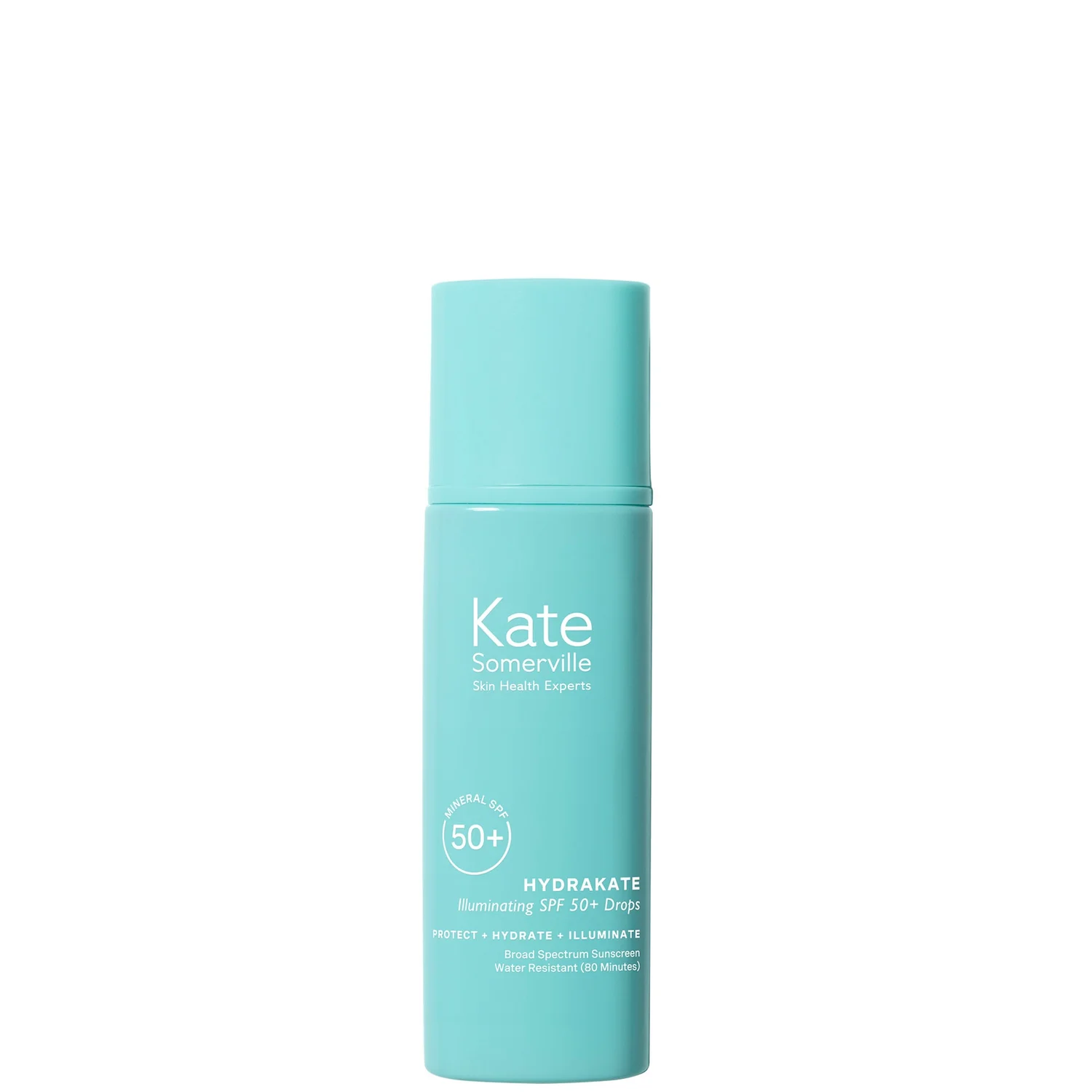
I have a beauty crush on Kate Somerville’s products, and as someone who gravitates towards anything that has the word ‘illuminating’ in it, I had high hopes. First of all, this felt more like a luxe serum than a sunscreen, and after a good rubbing in, it did give my complexion a wash of promised radiance. This is particularly flattering if your complexion looks a little flat or tired (hi me!). However, I did find it a touch too greasy when first applied, and it took a few minutes to settle before I could follow with my makeup. Maybe I used too much - but is that ever a bad thing when it comes to sunscreen? Anyway, it’s not a dealbreaker, but worth noting if you’re in a rush, prefer a matte base, or have very oily skin - keep scrolling for your recommendation. The formula itself is enriched with glycerin, a humectant that pulls moisture into the skin, helping to plump and hydrate. There’s also a blend of antioxidants which helps neutralise free radical damage from pollution and blue light, something I’m increasingly aware of as I spend more time glued to multiple screens.
Pros
- 100% mineral SPF (zinc oxide-based)
- Hydration without heaviness
- Subtle tint = no chalkiness
Cons
- Finish is glowy – maybe too glowy
- Takes a minute to settle
- Pricey for daily use
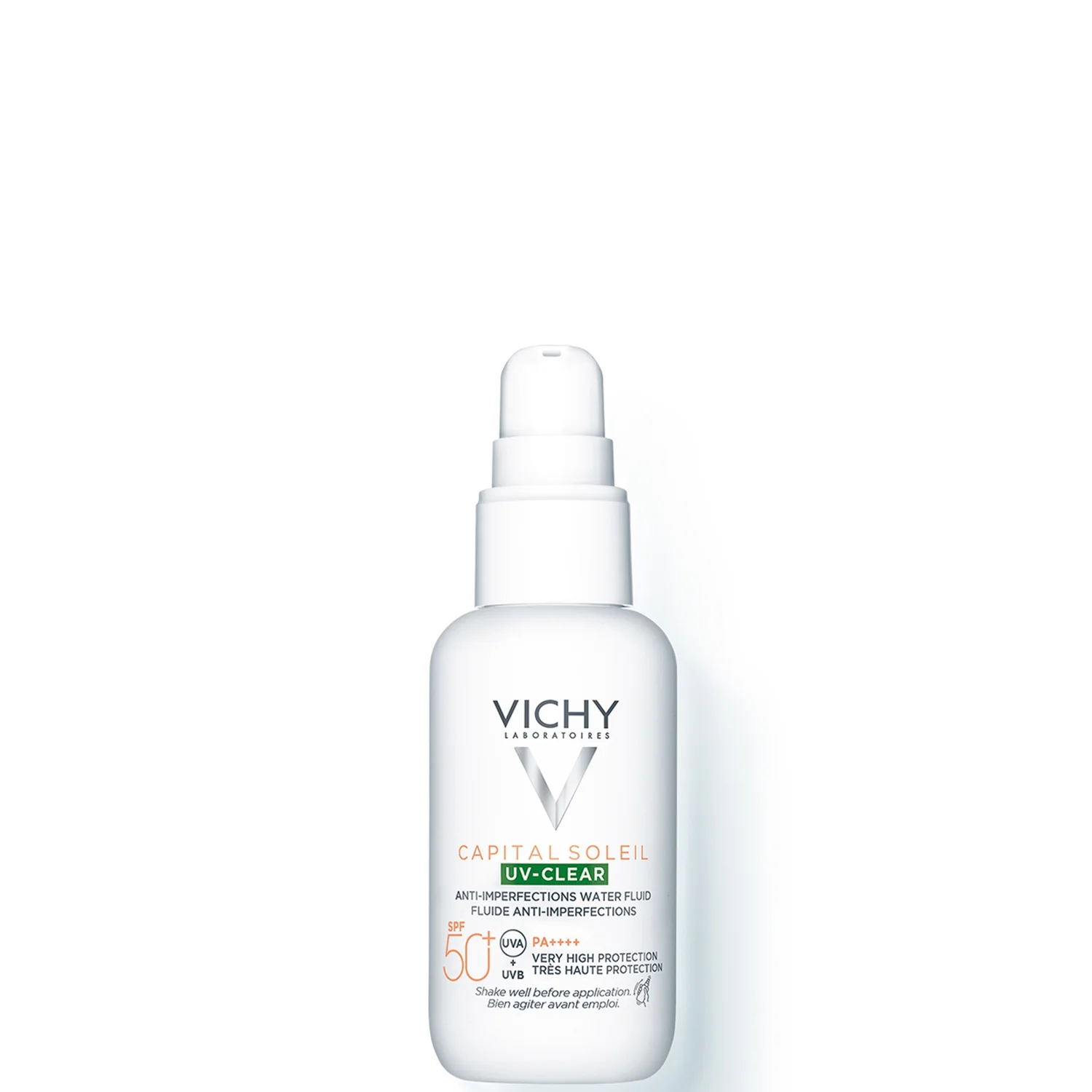
As someone with combination skin that’s still prone to the odd breakout (yes, even in my 40s), I’m always on the hunt for a high-factor SPF that protects without clogging. The brilliant thing is that this is a water-based formula, so the texture is impressively lightweight and fluid, with no thick, chalky residue. It sinks in quickly and dries down to a satin-matte finish, which makes it a solid choice for oilier skin types or anyone who struggles with midday shine. It layered well under makeup, too, which isn’t always a given with high-factor sunscreens. The real USP, though, is its skincare-led ingredients list. You’ve got salicylic acid and niacinamide, two gold-standard actives for keeping pores clear and calming inflammation. I found this particularly useful during those hormonal flare-ups when I usually worry that SPF will make things worse. In fact, after a week of consistent use, my skin looked smoother, less congested, and happily breakout-free. That said, this formula might feel a touch too mattifying for those with dry or mature skin types as it’s designed to control oil, so don’t expect dewy glow. But if you’re battling breakouts and still want proper protection (SPF50+ and UVA protection according to EU standards), it’s a great, no-fuss daily option for acne-prone or combination skin.
Pros
- Non comedogenic
- Anti-imperfection ingredients
- Hypoallergenic
Cons
- Slight fragrance
- Not for dry skin types
How we tested the best sunscreens for mature skin
When it comes to choosing the best sunscreens for mature skin, it’s not just about the SPF number on the bottle (although that’s important too).
We looked for formulas that tick multiple boxes: protection, performance, and skincare benefits, while also feeling great on the skin. If we wouldn’t happily wear it every day, it didn’t make the cut. That meant ruling out anything overly greasy, heavily fragranced or prone to pilling under makeup. The best sunscreens are usually the ones you forget you’re even wearing. Here's what we considered when testing:
- Broad-spectrum SPF 30 or higher: This is the gold standard for daily use, shielding skin from both UVA (ageing) and UVB (burning) rays.
- Skin-loving ingredients: Mature skin tends to be drier and more prone to sensitivity, so we prioritised sunscreens that include hydrating and barrier-supporting ingredients like hyaluronic acid, ceramides, niacinamide, squalane and antioxidants such as vitamin C or E.
- Non-comedogenic and non-drying textures: Heavy, greasy SPFs can feel uncomfortable, while some matte formulas can exaggerate fine lines. We tested for textures that layer well under makeup and don’t settle into creases.
- No white cast: Whether you’re fair or deep-toned, the best sunscreens should disappear into the skin. We considered both mineral and chemical formulas and tested them across a range of skin tones.
When choosing what to test, we chose to test sunscreen for your face, neck and chest, as these are the places that cause the most ageing concern for those with mature skin.
We started with a long list of dermatologist-recommended SPFs and editor favourites, then narrowed it down to products specifically formulated - or known to perform well - for mature skin. All have a SPF50 or higher. We included both high street and luxury options, aiming for formulas that deliver results and feel nice to wear.
Expert panel

46-year-old beauty editor Charley Williams-Howitt has fair skin with numerous freckles. She has noticed areas of hyperpigmentation and clusters of uneven skin tone. She has also noted that certain parts of her complexion are drier than usual. “I am very vigilant at protecting my face from the sun at this stage in my life and wear a high SPF every day,” she says. “However, I now look to more hardworking sunscreens that have additional skin-loving ingredients to help tackle fine lines, as well as offer protection.”
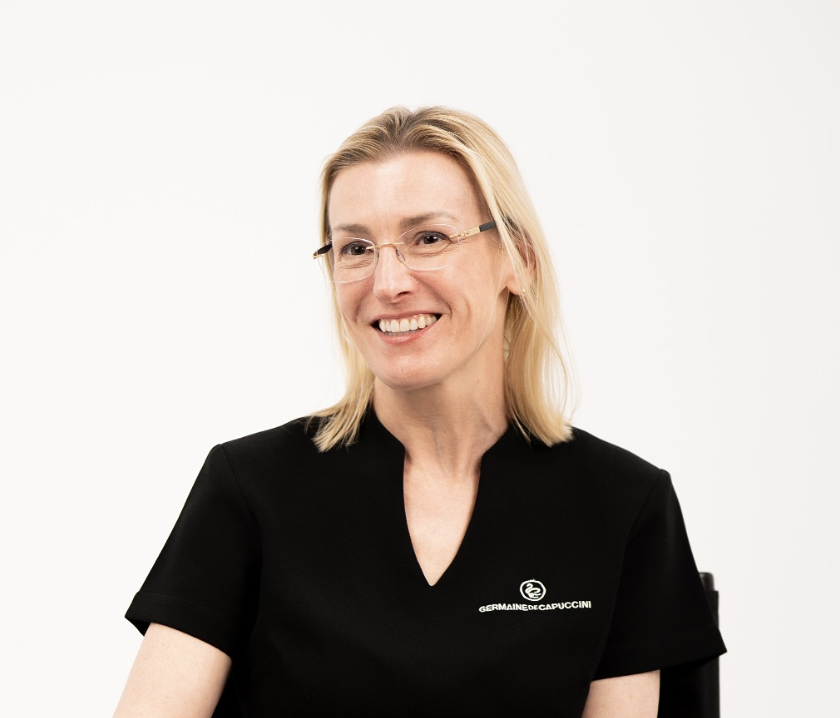
Gina Baker is Germaine de Capuccini go-to skincare expert, who has over 35 years of experience in the salon and spa industry.

A fully qualified Specialist Dermatologist who works with skincare brand Eudelo, Dr Hiva Fassihi is registered with the General Medical Council and is consultant dermatologist at St John’s Institute of Dermatology at Guy’s and St Thomas’ NHS Foundation Trust.
FAQs
What’s the best sunscreen for ageing skin?
“Whether it’s for mature skin or young skin, the best sunscreen must be stable in the sun and have maximum skin tolerance,” recommends Gina Baker, professional skincare expert, Germaine de Capuccini.
“Where possible, choose a sunscreen that protects against the full sun spectrum - UVA, UVB, Infra-Red A and HEVL - also known as blue light. This gives skin of any age the best chance to protect against skin cancer, photoaging, and free radical damage.”
How does sunscreen benefit mature skin?
“I'm always surprised when people spend hundreds of pounds on anti-ageing skincare, yet aren't using a sunscreen as part of their daily skincare routine,’ says Consultant Dermatologist, Dr Hiva Fassihi. “A broad-spectrum sunscreen is key to skin health and is the best anti-ageing product you’ll ever use.” As we age, the skin naturally becomes thinner and more delicate. It’s more vulnerable to damage from the sun.
“Unprotected sun exposure causes irreparable photodamage, and eventually, this shows up as hyperpigmentation, dark spots, and redness,” explains Gina. “Also, collagen and elastin fibres become damaged, causing wrinkles and loose skin.” Although we can’t stop the ageing process, we can prevent photoaging caused by overexposure to the sun’s rays. So, using sunscreen all year round does benefit mature skin.
How to apply sunscreen on mature skin?
“It’s important to use sunscreen every day, even in winter months, because ultraviolet, which is an invisible radiation, is present all year round, even in the winter months,” says Dr Fassihi. “It’s important to incorporate sunscreen use into your daily regime so it becomes routine.”
You should generally think of a dessert spoon amount when applying SPF to your face. If you don’t have a spoon to hand, know that this amount roughly equates to the length of two fingers. While this may sound like a lot, consider that it should cover your whole face, eyelids, lips, tops of ears and the neck.
Sign up to our free daily email for the latest royal and entertainment news, interesting opinion, expert advice on styling and beauty trends, and no-nonsense guides to the health and wellness questions you want answered.
Charley Williams-Howitt has over 20 years of experience working in the beauty industry. As well as previously writing for lifestyle titles, such as woman&home, Woman and Woman's Weekly, Charley has worked for British institutions like Marks and Spencer, John Lewis, and Superdrug creating visual and editorial content cross-platform. Starting her career in the fashion cupboard at Cosmopolitan magazine, she eventually escaped the piles of clothes to discover a world of makeup, moisturizers, and models.